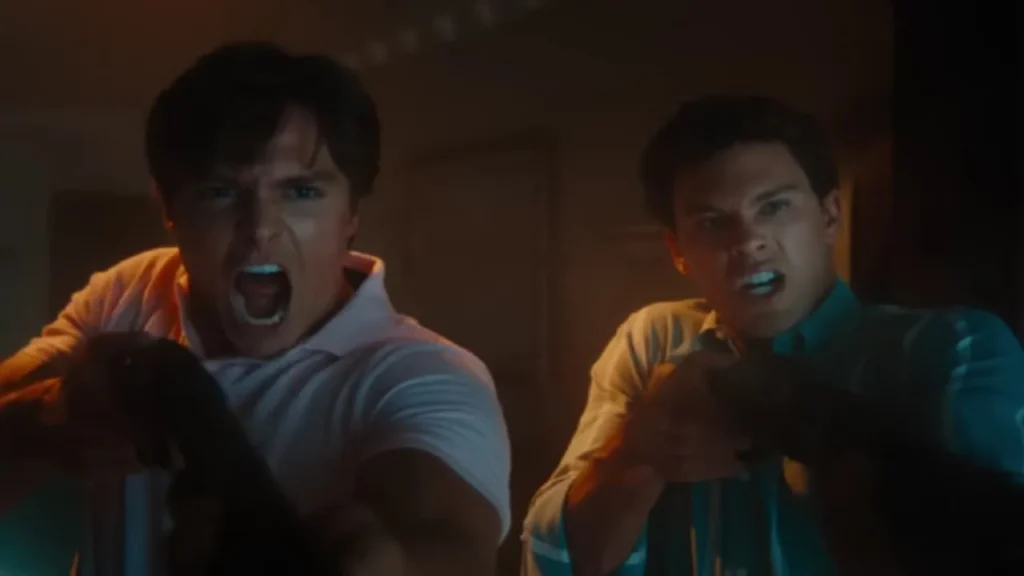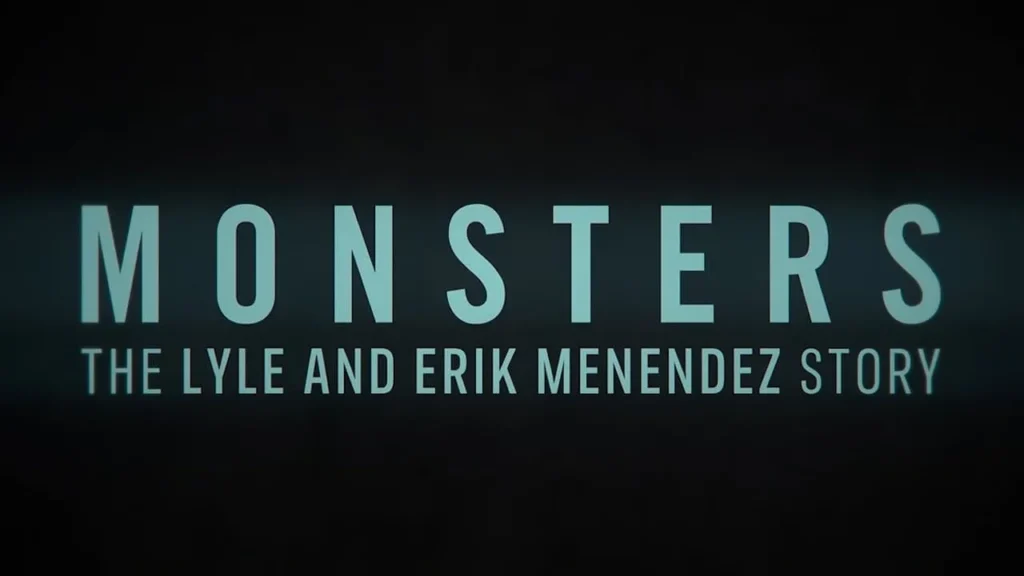The Lyle and Erik Menendez Story
“Monsters” (2024) has sparked a variety of reactions from both viewers and critics, presenting a nuanced portrayal of the Menendez brothers’ infamous case. The series, part of Netflix’s “Monster” anthology, dives deep into the lives of Lyle and Erik Menendez, exploring the murky waters between victimhood and villainy. Many viewers appreciate the meticulous attention to detail in the plot, which navigates the complex dynamics leading up to the tragic murders of their parents. The narrative’s attempt to present multiple perspectives, including the impact of the 1994 Northridge earthquake, adds layers of historical context that enrich the storytelling.
Performance-wise, the series excels with standout portrayals by Nicholas Chavez and Cooper Koch, who embody Lyle and Erik respectively. Chavez’s depiction of Lyle as ferocious and calculating has been lauded for its intensity, while Koch brings a sensitive depth to Erik, effectively keeping the audience questioning his sincerity and motives. Critics from various platforms have highlighted these performances as the backbone of the series, with the supporting cast, including Javier Bardem and Chloë Sevigny, delivering emotionally charged performances that heighten the series’ dramatic tension.
However, “Monsters” is not without its flaws. A significant point of contention among reviewers is the series’ tonal inconsistency. The shift between ominous and campy moments often disrupts the narrative flow, making certain courtroom scenes feel tiresome and grating. This tonal oscillation detracts from the overall impact, with some critics describing parts of the series as clunky and occasionally silly. The repetitive nature of some episodes has also been a sticking point, leading to perceptions of the series being overlong and exhausting for viewers seeking a more streamlined narrative.





Despite these criticisms, “Monsters” maintains a certain level of fascination, particularly for true crime enthusiasts. The show’s exploration of themes such as wealth, privilege, and the consequences of abuse resonates with those interested in the societal underpinnings of crime. The portrayal of the brothers’ motives remains intentionally ambiguous, allowing viewers to grapple with questions of guilt and innocence. This ambiguity has been praised for adding depth to the story, although some feel it leads to a narrative that feels futile and bizarre at times.
The series also delves into the public’s morbid fascination with true crime and the platforming of criminal figures, offering a critical commentary on how society consumes and sensationalizes such stories. This aspect has been appreciated by viewers who enjoy a more introspective take on the true crime genre. However, others argue that the series leans too heavily into sensationalism, making it feel exploitative rather than providing a nuanced exploration of the case.
The execution of “Monsters” has been a mixed bag, with some praising the attention to detail and the faithful recreation of the era, while others find the pacing uneven. The incorporation of significant events like the Northridge earthquake is seen as a clever way to contextualize the brothers’ actions within a broader socio-economic framework, though not all viewers find this approach effective. The show’s ability to maintain intrigue despite its uneven pacing speaks to the strength of its central performances and the compelling nature of the true crime story it tells.
Viewer sentiments reflect this division, with some appreciating the series as a thought-provoking addition to the “Monster” anthology, while others feel it doesn’t quite live up to the standards set by its predecessor, “Dahmer.” The comparison to “Dahmer” is inevitable, and while “Monsters” offers its own unique perspective, it struggles to achieve the same level of darkness and intensity that made “Dahmer” so impactful.
Critics have also pointed out that the series sometimes feels tone-deaf, with moments that clash with the overall narrative tone. The blend of dramatic and lighter moments can feel jarring, making it difficult for the series to maintain a consistent emotional resonance. Some reviews describe the series as “exploitative,” suggesting that it prioritizes sensationalism over a respectful and thorough examination of the Menendez case. This criticism underscores a broader debate within the true crime genre about the balance between engaging storytelling and ethical representation of real-life tragedies.
On the technical side, the cinematography and production design have received commendations for effectively capturing the opulent yet tense atmosphere of the Menendez household. The visual storytelling complements the narrative’s exploration of wealth and privilege, highlighting the stark contrasts between the brothers’ outward lives and their internal struggles. The use of flashbacks and multiple viewpoints adds a documentary-like quality to the series, enhancing its realism and immersive quality.
In terms of social commentary, “Monsters” does not shy away from addressing broader societal issues. The series critiques the glorification of criminal figures and the voyeuristic tendencies of the public, prompting viewers to reflect on their own consumption of such stories. This meta-narrative adds an intellectual layer to the series, inviting discussions about the ethics of true crime entertainment and the impact it has on both the subjects and the audience.
Ultimately, “Monsters” (2024) is a compelling yet imperfect addition to the true crime genre. Its strengths lie in powerful performances and thought-provoking themes, while its weaknesses stem from tonal inconsistencies and narrative flaws. For those intrigued by the complexities of the Menendez case and the psychological depths of its characters, “Monsters” offers a captivating experience. However, its execution may leave some viewers yearning for a more cohesive and consistently engaging storyline. Despite its shortcomings, the series contributes meaningfully to ongoing conversations about crime, privilege, and the human psyche, making it a noteworthy watch within the crowded landscape of true crime television.
Monsters (2024) FAQ
1. What is “Monsters” (2024) about?
“Monsters” (2024) is a true crime series that delves into the infamous case of the Menendez brothers, Lyle and Erik, who were convicted of murdering their parents in 1996. The series explores the complex dynamics between the brothers, examining whether they were driven by cold-blooded motives or acted as victims of prolonged abuse.
2. Who are the main cast members in “Monsters”?
The series features standout performances by Nicholas Chavez as Lyle Menendez and Cooper Koch as Erik Menendez. The supporting cast includes acclaimed actors like Javier Bardem and Chloë Sevigny, who add significant emotional depth to the narrative.
3. How have critics responded to “Monsters” (2024)?
Critics have given “Monsters” a mixed reception. While the performances, particularly those of Chavez and Koch, have been widely praised for their intensity and sensitivity, the series has faced criticism for its tonal inconsistencies and narrative flaws. Some reviewers describe parts of the series as clunky and occasionally silly, detracting from its overall impact.
4. What themes are explored in “Monsters”?
“Monsters” delves into themes of wealth, privilege, and the consequences of abuse. It also addresses societal issues such as the public’s fascination with true crime and the glorification of criminal figures. The series presents an ambiguous portrayal of the brothers’ motives, encouraging viewers to question their guilt and the underlying reasons for their actions.
5. Where can I watch “Monsters” (2024)?
You can watch “Monsters” here.
6. Does “Monsters” provide multiple perspectives on the Menendez case?
Yes, the series attempts to present multiple viewpoints, including the impact of significant events like the 1994 Northridge earthquake. This approach adds historical context and complexity to the narrative, allowing viewers to gain a deeper understanding of the circumstances surrounding the murders.
7. How does “Monsters” compare to other installments in the “Monster” anthology series?
“Monsters” is the second installment in Netflix’s “Monster” anthology series. While it offers a compelling retelling of the Menendez case, some viewers feel it does not achieve the same level of darkness and intensity as its predecessor, “Dahmer.” The comparison highlights “Monsters” strengths in performance but also its shortcomings in maintaining a consistently engaging tone.
8. What are some common criticisms of “Monsters”?
Common criticisms of “Monsters” include its tonal inconsistencies, with shifts between ominous and campy moments disrupting the narrative flow. The courtroom scenes have been described as tiresome, and the repetitive nature of some episodes makes the series feel overlong and exhausting. Additionally, some reviewers view the series as exploitative, prioritizing sensationalism over a nuanced exploration of the case.
9. Is “Monsters” suitable for true crime enthusiasts?
Yes, “Monsters” offers a deep dive into a notorious true crime case, making it a captivating watch for true crime enthusiasts. The series provides a detailed exploration of the Menendez brothers’ motives and the societal factors surrounding the case, despite some execution issues that may affect broader appeal.
10. What aspects of “Monsters” have been praised by viewers and critics?
Viewers and critics have praised “Monsters” for its strong performances, particularly by Nicholas Chavez and Cooper Koch. The attention to detail in the plot and the faithful recreation of the era have also been highlighted. Additionally, the series’ exploration of complex themes and its critical commentary on true crime consumption have been appreciated by many.
11. Does “Monsters” address the ethical implications of true crime storytelling?
Yes, “Monsters” touches on the ethical implications of true crime storytelling by critiquing the public’s morbid fascination with criminal cases and the platforming of criminal figures. The series invites viewers to reflect on their consumption of such stories and the impact it has on both the subjects involved and the audience.
12. How is the production quality of “Monsters”?
The production quality of “Monsters” has been commended for its cinematography and production design, effectively capturing the opulent yet tense atmosphere of the Menendez household. The use of flashbacks and multiple viewpoints adds a documentary-like quality, enhancing the series’ realism and immersive experience.
13. What makes “Monsters” a noteworthy addition to the true crime genre?
“Monsters” stands out in the true crime genre due to its compelling performances, thematic depth, and the balanced portrayal of the Menendez brothers. Despite its narrative and tonal flaws, the series contributes meaningfully to discussions about crime, privilege, and the complexities of human psychology, making it a significant entry in the crowded landscape of true crime television.
14. How long is the series, and is it binge-worthy?
While “Monsters” offers a detailed exploration of its subject matter, some viewers find the series to be overlong and exhausting due to its repetitive episodes. Whether it is binge-worthy depends on individual preferences, particularly for those who enjoy in-depth true crime analyses despite potential pacing issues.
15. Where can I find more information or watch the series?
For more information or to watch “Monsters,” visit iwatchonline.cc.




